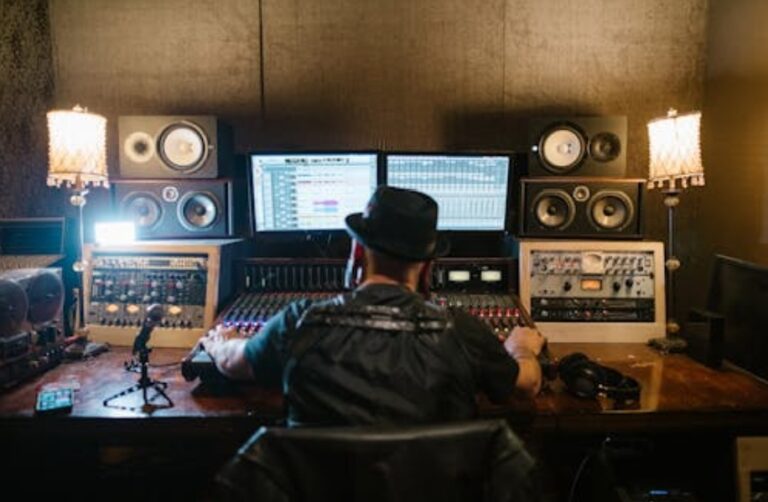Recording studios are complex operations. Beyond the creative side of capturing music, studios must manage bookings, allocate rooms and gear, track session history, handle billing, and coordinate with clients and staff. Using ad-hoc tools—spreadsheets, email threads, shared calendars—can lead to confusion, double bookings, slow invoicing, and poor client experience. A purpose-built management tool addresses all these issues by centralizing operations, reducing friction, and allowing studio owners to focus on what matters most: music.
What Core Features Should Studio Software Include?
At its heart, the ideal studio management software should offer seamless scheduling of rooms and gear, flexible resource control so that gear can be reserved or blocked appropriately, and client portals where clients can view availability or book sessions. It should also automate invoicing and payments (including handling deposits, adjustments, or usage-based billing), manage project workflows (tracking deliverables, session notes, revisions), send notifications (for confirmations, reminders, cancellations), and provide reporting (utilization stats, revenue breakdown, client retention). Integration with other tools—accounting software, file storage, access control—is also highly desirable to reduce data silos.
Standout Software Options for Recording Studios
Spacebring – All-in-One & Studio Focused
Among the modern choices, Spacebring provides a balanced, cohesive solution designed to support recording studio workflows. It enables clients to view studio availability, book rooms or gear, and pay online. Studio managers can set booking permissions, automate subscriptions or billing, and manage rentals of microphones, mixing consoles, or other gear. It also offers analytics on usage patterns and supports community engagement features to foster loyalty among studio clients.
Studio Manager (Studium33) – Industry Veteran
Studio Manager, built by Studium33, is a long-standing software in pro studio circles. It handles estimating, session scheduling, purchase orders, staff assignments, equipment scheduling, and automatic invoicing. Many high-end recording studios rely on its deep feature set to eliminate administrative overhead.
Sonido – Streamlined Platform
Sonido is another tool built for studios that want simplicity with power. It brings together scheduling, billing, project tracking, and client contact in one platform. Studios using it often praise how it reduces the number of tools needed to manage operations.
AudioDope – Unified Studio Workflow
AudioDope positions itself as a unified studio operations platform. It supports session scheduling, project tracking, equipment management, client billing, and status tracking—reducing friction between recording sessions and back-office work.
EasyWeek – Booking + CRM Hybrid
For studios with lighter operational needs or those starting out, EasyWeek provides online booking, service scheduling, client database management, and staff calendar functions. While it may lack some deep studio-specific features, it’s a good option for smaller operations.
Skedda – Scheduling Specialist
Skedda is more of a booking and facility scheduling tool than a full studio management platform, but many studios use it to manage room availability and client self-service booking. For studios that already have billing and project tools, Skedda’s scheduling capabilities can complement those systems.
Choosing the Right Solution for Your Studio
Select a tool based on your studio’s size, complexity, and growth plans. If you run a full-service recording facility with multiple rooms, gear, staff, and external clients, you’ll benefit most from comprehensive platforms like Spacebring, Studio Manager, or AudioDope. If your focus is limited to managing room bookings and scheduling, lighter tools like EasyWeek or Skedda might be sufficient. Always test how well a platform handles your real workflows: gear reservation conflicts, client billing changes, multi-session projects, etc. Prefer systems with flexible setup, good support, and integration options so you aren’t locked in.
FAQs
1. What is the best management software for recording studios?
There’s no one-size-fits-all, but top picks include Spacebring, Studio Manager, Sonido, and AudioDope, depending on how many features you need.
2. Can these platforms manage both room and gear reservations?
Yes, leading systems let you treat gear (microphones, consoles) as bookable resources alongside rooms, with permissions or dependency controls.
3. Do they support automated invoicing?
Yes — most include billing modules that generate invoices based on booked sessions, extras, and usage fees.
4. Are lighter tools like EasyWeek or Skedda enough?
For studios with simpler needs and lower volume, these tools may suffice. But as complexity grows, you’ll likely outgrow them.
5. Will these tools scale as my studio expands?
Yes — good platforms are built to scale across multiple rooms, staff, or even multiple studio locations, though licensing or feature tiers may vary.
Conclusion
Recording studios require a delicate balance between creative freedom and operational structure. Without proper tools, administrative burdens can stifle creativity and hurt profitability. The best management software for recording studios integrates booking, resource control, billing, project management, and client workflows in a unified platform.
For studios seeking a modern, cohesive solution, Spacebring is a strong candidate, combining studio-specific workflows with user-friendly design. For more mature or complex studios, options like Studio Manager or AudioDope are worth serious consideration. As you evaluate, focus on how well the software fits your real workflow, how flexible it is, and how it will support your growth in the long run.
